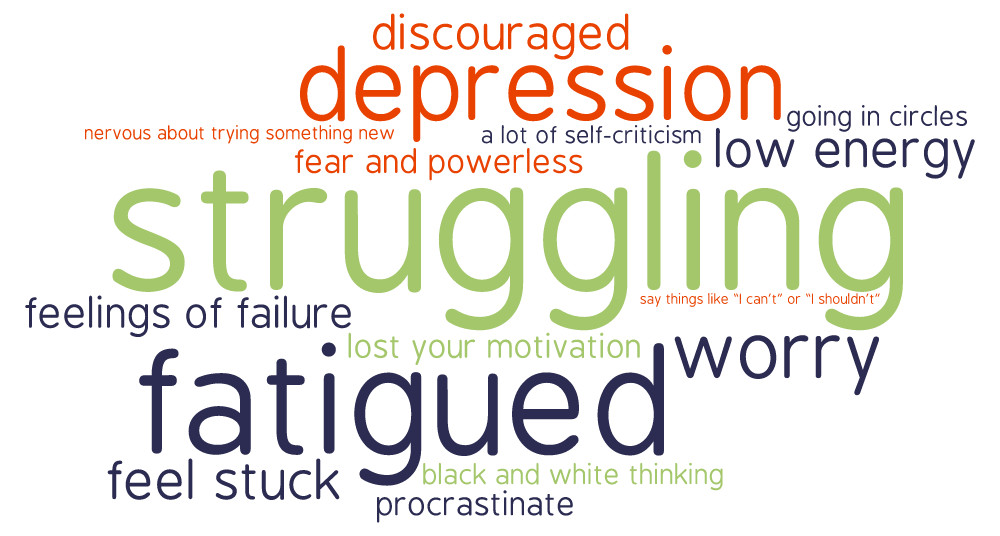
by Deirdre | Jan 9, 2016 | Blog, Healthy Mind, Inspired Living, Resilient Mindset
We’re at that time of year again when the world is full of people who want to help us fix ourselves.
Have you noticed that many New Years’ resolutions have a scolding tone of voice? No more desserts for you until you’ve cleaned up your exercise routine, young lady. I told you not to spend so much over the holidays, young man. Now go clean that mess up!
Let’s try a different approach, shall we? Let’s go carrot instead of stick.*
Something New for 2016
I am entering 2016 from a different angle and I invite you to come along for the ride. I’m going to frame out the year through a series of 25 questions that ponder some of life’s intriguing questions. With that 25 questions I’m going to create 100 things – blog posts, webinars, courses, doodles, photos, etc. Anything that helps me express my ideas and experiences about that question. A different question every two weeks. I’ll be diving into the questions with clients, posting on Facebook, tweeting, journalling, Instagramming, creating and checking in with people around me.
Where did this idea come from? Almost out of the blue. I casually joined a group called Quest2015 in early December. I thought it was a group business planning exercise, and it was. What caught my eye initially was a 10% discount for an erasable calendar. I thought it would be great for planning the year out. This makes me laugh now.
Open Wonder
My whole sense of what is possible in life was cracked open in December. I know, I know. That’s a pretty big statement. And we hear phrases like that all the time for some pretty mundane events. But it was a real game-changer, to quote the biz types.
Through small doors come life-changing experiences. Jeffrey Davis, of Tracking Wonder, put out the invitation to business artists to use 12 prompts from a group of innovative thinkers to dive deeper into the why of our businesses. I knew, and had an intellectual crush, on quite a few of them. How could I say no?
One of the early prompts was from Pam Houston. She is the author of four books, including novel Contents May Have Shifted and short stories Cowboys Are My Weakness. I haven’t read her work (soon to be fixed) but others call her beloved and insanely talented. She is Professor of English at UC Davis, directs the literary nonprofit Writing by Writers, and teaches in the Pacific University low residency MFA program.
She asked us to sit quietly and ask yourself, what in the last day or week or month has made your heart leap up? Not what should, or might or always had, but what did. Make that list. Be honest, even if it surprises you. Keep the list with you this month. Add to it when it happens. Train yourself to notice. Then ask your self today, how can I arrange my life to get more of those heart leaps in it?
My Leap
This thing made my heart leap when my husband hung it before Christmas.

And it made my heart leap every time I stepped out the door and I’d forgotten that was there. Why?
Well, it’s shiny and pretty — and I love shiny things. I used to make things like this all the time but I stopped. Life got kind of serious and difficult and I forgot about making things. Then it got busy and making shiny things was frivolous. And often I was too tired to make things. More spiritually than physically.
And I finished it! I started with a hula hoop, some pool noodles, duct tape and a crapload of ornaments. Now it’s a circle of shininess. Sometimes there were balls on the ground and I knew that the squirrels had taken it for a spin. That makes my heart happy. I’d just put them back on for their next spin.
My heart leaps because I have a sense of getting a ‘next time’ to spin on the shiny circle again myself. Making that shiny circle of Christmas sparkliness seemed to herald a return to energy and possibility. Here’s what’s on my list . . .
Dive into sensual pleasures. Movement that nourishes. Joy in others. The beauty of nature. Giving love away like it’s a bottomless pool. Laughing with friends until you cry or spit or expel something. Pretty things that please the eye. Good music. Deeply connecting with others. Seeing people grow into their potential. Remembering warm times from the past. Making things. Writing things. Cooking things.
January is a tricky time of year. There’s a natural settling in that comes from the lead of winter. Many of our animal brethren are hibernating and the song of cozy sings. For those who are internal and introspective there can be too much burrowing in and losing contact with the pleasures and joys of nature and connection. To much disconnection from the beauty that life offers if we can see it.
I find my body gets so out of synch over Christmas that a sense of depression falls on it by the end of the month. And with my body goes my mind. Adopting the “New Year’s resolutions” of healthy eating and exercise is more about restoring mental and physical balance than losing weight or changing a size. I want to restore the connection to my nourishing inner life.
Nourish Yourself
Sometimes I have trouble recognizing the things that make my heart leap, even with the return of healthy kindness to my body. Then I turn to another two of my intellectual crushes — Rick Hanson and Barbara Fredericton. I’ve been very lucky to meet both of them and was dweeby when I did.
Rick Hanson wrote Hardwiring Happiness, which is filled with practical mindfulness practices that help your brain balance it’s tendency to see the negative. Barbara Frederickson is a researcher and professor of psychology at UNC at Chapel Hill. Her research reveals how positive emotions, fleeting as they are, can tip the scales toward a life of flourishing. Her Positivity website is a good place to start and has a handy app that helps you see where your emotions are at.

This is a perfect time for journalling and visiting with yourself. Ask — where does your heart leap? Pull out your pictures from last year. As you leaf or page through, remember the moments that your heart leapt. As you have a few moments of quiet let your mind wander to the times of pleasure, happiness and joy. Make a list of the important people in your life and write down those heart leaping experiences with them. Then do the same for those times you shared with strangers. Anything that brings you back to the joys of 2014. Let your mind and heart take you from there.
 I divide my experiences into pleasure, happiness, and joy. For me, pleasure is a personal experience. Some delicious chocolate, a good meal, a nice glass of wine. Happiness is a harmony thing. The moments with family and friends of warmth, successes, connection, brightness and order make me happy. Joy comes from a larger place, a place where I can witness the unfolding of what is beautiful and right in the world.
I divide my experiences into pleasure, happiness, and joy. For me, pleasure is a personal experience. Some delicious chocolate, a good meal, a nice glass of wine. Happiness is a harmony thing. The moments with family and friends of warmth, successes, connection, brightness and order make me happy. Joy comes from a larger place, a place where I can witness the unfolding of what is beautiful and right in the world.
*Not to say that stick doesn’t have it’s place. Sometimes the stick of a deadline or a promise is just what will keep you chugging along. But it’s a heavy-handed tool and you’re much more treasured than that.
Photo: Love joy_ Dave Parker CC 2.0

by Deirdre | Mar 8, 2015 | Inspired Living, Resilient Mindset
“Anything worth doing is worth doing badly.” – G. K. Chesterton
Quick. Think of your most important relationship. Is it partner, kids, an inspiring friend, a parent, a mentor at work? Think again. What about the relationship you have with the voice in your mind? How harmonious is that relationship for you? Kudos if you have developed an equally great relationship with your inner critic and your inner champion.
If you’re like most of us you probably want to give that critical voice a Xanax and move on. What a trickster and killjoy it can be! But when we don’t develop a good relationship with this voice it starts running the show. We cut ourselves off from what we’re capable of. It stops us from reaching out to other people. It preaches perfection.
I think what GK Chesterton is arguing is that most of life doesn’t require all that much precision. It’s better to show up regularly with a decent effort than to flame and then crash. There’s a lot to be said for doing “just enough” for your responsibilities and saving some time for restorative and nurturing pleasure. Your inner champion knows this.
Who’s Voice?
How does your inner critic treat you? Does the voice show up to remind you that you’re not all that and stop you from exploring your talents? Maybe you are acutely aware of critical comments people make about you. Do you remember every slight or casual comment as a barb? Or perhaps you have mindlessly followed the path others have laid out for you, unsure of yourself and your ability to choose the right path for yourself.
Over the years women have shared their inner critic stories with me:
- My inner critic is a gorgeous model in fantastic shape. She is organized, energetic, motivated and great at everything she does.
- Mine is a crazy wild child who is somewhat spoiled. She is loud and spontaneous. When she wants my full and undivided attention she sings loudly.
- Mine lives on a farm. She’s always trying to rope me in and keep me from “going for it”.
- Mine is an old woman, 30 or 40 years years older than me. She’s always complaining that I have neglected her dreams, desires and wishes.
- Mine is a doctor, forever evaluating and assessing. She’s looking for what is wrong to fix it. All she sees is the worse case scenario.
- Mine often tells me if I can’t do some thing perfectly, then it’s not worth doing.
- Mine is a stern pinched judgmental old woman who is always taking me to task for making poor choices or not being perfect in every way.
Doesn’t that make you tired just reading it???
Sadly, ignoring the critical voice just doesn’t work. First, it falls out of touch with reality. You locked it away and it hasn’t watched you grow up. Remember when you were a kid and your parents’ friends came over. They couldn’t stop themselves from saying how much you’d grown, how tall you were, how grown up you were now. You’d roll your eyes and know, with the pure conviction of a child, that you were never going to be that lame when you grew up.
Guess again. When you don’t stay in relationship with your inner critic it turns into one of those lame adults. When you don’t really take in your accomplishments and share them with the voice you are not integrating everything you learn in life. The voice needs new ways to get your attention. It has to get really loud to catch your attention. And when loud doesn’t work then it gets nasty.
Signs that you’ve been ignoring the voice for too long

Get to Know Both Voices
It may not seem like it but you can influence whether you hear your inner critic or your inner champion more clearly. Your inner critic is louder so you have to listen harder for your inner champion.
Acknowledge your inner critic
Thank them for keeping you safe, even if they overdo it sometimes. More gold stars if you can learn to give thanks for your inner critic and how they may have stopped you from doing something really stupid at least once.
Check your stress level
Your body may already under a lot of stress. Perhaps you notice that you’re craving more sugar or drinking more coffee. You may be snappish with people around you and feel like you’re under more pressure than usual. Your inner critic is going to be louder and more negative when this is going on. Do some breathing exercises and coax your mind back into calmness. Then see if you can take a break, go for a walk or schedule some R&R. Your inner champion goes under cover when you’re stressed.
Explore what’s triggering your inner critic
What is your inner critic trying to protect you from? There’s an underlying seed of something that is triggering it. Do some journalling about where you are stuck. See if you can put some behaviours together with your inner critic. Do you procrastinate? Avoid new challenges? Avoid certain people? See what you’re not doing because you want to avoid your inner critic.
Remember what’s important to you
Keep a reminder of your big picture nearby. This is where your inner champion knows the score. What is the real contribution you’re trying to make? Who will it help? What do they really need? Keeping in touch with your own personal why can help you tiptoe through the stories and consequences that your inner critic is throwing around.
Who says?
Maybe your inner critic is worried about you breaking the rules. We’re taught a lot of rules along the way that we realize later are just opinions. Or maybe the rule that was important once but not now. When you pause to ask ‘who says?’ it gives you a moment to sort through whose rule this is and whether it belongs to you anymore.
Create an advisory board
Find some of your biggest supporters — your outer champions. Find people you admire and aspire to be like. People whose values you admire. Form an informal advisory board that meets in person or just in your head. When you have something big to do and your inner critic is getting in the way you can turn to them for advice. They can give you a balanced perspective on your strengths and weaknesses.
Posted by Deirdre Walsh
Image: Listen to your inner voice by BrewingColors under Creative Commons 2.0
If you enjoyed this post, please share it with your friends!
by Deirdre | Oct 4, 2014 | Blog, Resilient Mindset
Even in the middle of a dream-come-true things can get dicey.
The trip to Peru with my cousin had been in the works for five years. We had a big-ish birthday coming up and we wanted to celebrate with something memorable. The last time we were together her daughter was hiking the Inca Trail. That dream caught our imaginations and trekking through the Andes became the goal.
And what a dream it was. If Peru isn’t on your bucket list I’d suggest that you seriously consider putting it there. The people are warm and friendly (perhaps not taxi drivers), the scenery is breathtaking, the food is world-class and the whole country has a vibe of being fully and completely ALIVE.
Much like life, even within the wonderfulness there were a few times where things went “sideways” or fell into the “not so much” camp. In those moments my days and years of practicing mindfulness made all the difference in living peacefully through moments (rather than hours) of discomfort.
Really Living the Dream
One of the secret superpowers of mindfulness is that it delivers “emotional control” when you practice on a regular basis. Now that’s not a very sexy term. And it certainly isn’t going to stop you in your tracks to say “I need to get me some of that.” But in the face of unexpected difficulties it’s the difference between living the dream or creating a nightmare.
The best part is that it shows up without even really trying. It’s just part of the package. A fancier term for it is mindful acceptance. Instead of whipping up a storm of drama in our minds based on what we “deserve” we can drop the drama and deal with the reality of the situation.
How Awful Could It Be?
There were a couple of times when this feeling of acceptance made all the difference. First up was camping. Now, I don’t like camping at all. But there was really no way around it on the trek. How awful could it be?
Well, there was a splendour of shades of awful. Cold awful. Ice on the tent awful. Hard to breathe at the altitude awful. Awake all night listening to the dogs and pigs fight outside the tent awful. But, you know what? Time passes a lot more quickly when you let it float by. Morning seemed to come quicker and the night was forgotten at the first sight of the truly gorgeous day that was ahead of us.

Lesson learned:
Just because something is hard doesn’t mean you have to be awful.
There was an easy opportunity to spin into a nightmare during our trip home. Our flight in Cusco was cancelled and that cascaded into a whole stinking mess since there were shutdowns at O’Hare and backlog through the system. Oh, and the earthquake. We were looking at a 24 – 36 delay on top of the 18 hour trip home.
There were a lot of people on the flight who were threatening and melting down right from the beginning. 12 hours in most of them looked like they’d been on a bad bender. Hunched over – big dark circles – embattled. Their being upset was exhausting for everyone.
As I stood in line for the sixth hour, trying to get a boarding pass (not consecutive, thank heavens), my route appeared — 16 hours in Lima, then a 5-hour flight; 8 hours in Miami and then a 3-hour flight. And that was a good deal! I started practicing my breathing, calling for acceptance and generally trying not to tear up. I wouldn’t have been able to keep my cool with the same degree of sleep deprivation and turmoil before starting mindfulness.
Lesson learned – part two:
Being awful is as hard on you as it is on everyone around you.
Mindfulness is a skill and a tool that can help you lower the impact of “awful” on you. You have stronger relationships by letting the “awful” float by. You stop letting your discomfort and pain spill out on top of everyone else. You laugh off the challenges. Or, at least, you just feel better after a challenging time — you look better and you get back to the fun stuff a lot quicker.
Posted by Deirdre Walsh

by Deirdre | Oct 26, 2012 | Blog, Resilient Mindset
I tried a local hot yoga studio twice or so a couple of years ago. It was full of promise – young, hip owners, a reclaimed space with exposed brick and high ceilings, close to home. It all added up to a much funkier experience than we’re used to in our suburban ‘hood.
I knew that I was going to be struggling in the back for a while, but I had no idea what was in store for me. The class was filled with amazing devotees ready for some hard-core yoga. There was a small-time local celeb ready for the heat, wearing a tiny outfit that I will never be able to unsee. It was serious yoga for serious people.
Still, I was willing to be the neophyte in the back, ready to take the pity stares as part of the yogic lesson. That is, until one of the young, hip owners came over to adjust me and then informed the class, in a Valley-girl kind of nasally tone, that how we are on the mat is how we are in life. I had a sense of being nagged on the mat – not what I was going for. The peace and balance I was looking for evaporated and was replaced by irritation.
I wasn’t loving the delivery, but I knew she was saying something very important.
How we are is how we are
How we are on the mat is how we are at our jobs, is how we are with our friends, and on and on. The amount of mindfulness and care we bring to the things in our life is pretty consistent across the board. Sure, we can pull out some fresh energy and motivation when something is new or really important to us. But for the routine daily habits of our life, we almost always bring our own mix of attention or distraction, and frustration or patience, and self-compassion or inflated demands to our routines.
To bring peace and balance to our day we can start with just about any area of our life.
Peace and Balance Start with Mindfulness
A powerful way to begin is with mindfulness. Mindfulness is about using conscious effort to shift your thoughts towards what is going on from moment to moment. It moves us away from thinking about the past or the future and toward being present to what’s happening right now. It is closely aligned with meditation, but you do not have to meditate to be mindful. The saying “Stop and smell the roses” captures the idea of mindfulness very well.
There are four main parts of mindfulness:
- Being aware of your breathing
Eating is as good an entry way to balance as any other. It’s something we do every day and it’s also an activity that carries a lot of our emotional baggage for us. I’ve stopped being surprised by how engaged people by are by what they eat, when they’re eating, and who was with them. A mindful way to peace and balance in your eating is to focus your attention on gratitude. You can be grateful for the people that brought your food to the table. Or simply to the fact that you have the nourishment that you do. There are a hundred ways to bring mindfulness to your dining.
What brings a sense of gratitude to your meals?
Posted by Deirdre Walsh
Image: Adam Krowitz. Licensed under Creative Commons
If you enjoyed this post, please share it with your friends!

by Deirdre | Mar 30, 2012 | Inspired Living, Resilient Mindset
Most of the time when we feel blocked it is because we are safer that way. We may not be happy, but at least we know what we are – unhappy. ~ Julia Cameron
Whenever I meet someone who is interested in growth and continuing to unlock their potential they usually mention Julia Cameron’s The Artist’s Way. It seems like her book is on the required reading list for squeezing more juice out of life.
Julia has a very change-friendly approach. She suggests creating a zone of safety that allows you to experiment and test. It also helps you get to know those internal voices that can stop us dead or lead us to a new ease with life – our inner critic and our inner champion.
The Inner Critic
Any time we get close to the edge of growth we stir up the inner critic. I’ve written about it here. When we start to take on new challenges, this critical voice can stop us from even beginning to change. It may be so overbearing and judgemental that we seek self soothing behaviors such as eating, drinking, excessively watching TV, sleeping or shopping, etc. in order to drown it out.
Most people are not aware that this judgemental voice is not real. It’s running critical commentary has been there since childhood and it feels quite natural. As Cheri Huber, Zen teacher, says: “That voice inside your head is not the voice of God – it just sounds like it thinks it is.” The inner critic’s self-appointed job is to spare us the shame and pain that might come from trying and failing. But, with irony abound, the inner critic makes us feel the endless shame and pain it’s trying so hard to save us from.
As coach Michael Neill puts so well: “The problem is not that you say horrible things to yourself; the problem is that you listen to them.” What I’ve found helpful in dealing with this voice is to understand that it’s our mind’s misguided attempt to keep us out of trouble. Our brain vigilantly defends us from danger by pumping out the stress chemicals that make us want to fight or flee the situation. Before it does that it floods us with these critical judgements that make us doubt our competence to even try.
The Inner Champion
There is another, softer, voice that is there to guide you during change, if you take the time to listen for it. Your inner champion is the internal voice that supports resilience, confidence and, ultimately has us be more successful in life. According to Dr. Amy Johnson, a psychotherapist and life coach, the inner champion has three characteristics that make it very different from the inner critic:
- The real still small voice within you doesn’t think you suck. Your inner champion may guide you away from things that do not serve you or others, but without shame or criticism.
- Truth has an undercurrent of peace. Your inner champion moves you towards clarity without judgement. You may feel loss and uncertainty with the guidance, but you will also feel a sense of rightness and closure.
- Fear has urgency. Truth is patient. Your inner champion will guide you to what’s right rather than have you run from what’s wrong. And there’s all the time in the world for that.
The Inner Champion springs from two other neural systems in our brain – the system that draws us to rewards and pleasure and the one the one that bonds and attaches us to close groups. It draws us towards creating, exploring, connecting and enhancing the lives of those around us. But because we were designed to survive threat first, the inner champion is like a beautiful bird singing outside the window while the inner critic belts out punk tunes with her band at the front of the room.
This story describes the tussle between the two voices so beautifully:
One evening an old Cherokee told his grandson about a battle that goes on inside people. He said, “My son, the battle is between 2 wolves inside us all.
One is Evil. It is anger, envy, jealousy, sorrow, regret, greed, arrogance, self-pity, guilt, worry, resentment, inferiority, lies, false pride, superiority, and ego.
The other is Good. It is joy, peace, love, hope, serenity, humility, kindness, benevolence, empathy, generosity, truth, compassion and faith.”
The grandson thought about it for a minute and then asked his grandfather: “Which wolf wins?” The old Cherokee simply replied, “The one you feed.”
Posted by Deirdre Walsh
Image: Supergirl, iStockphoto
If you enjoyed this post, please share it with your friends!

by Deirdre | May 18, 2011 | Resilient Mindset
This being human is a guest house. Every morning a new arrival. – Rumi
You’re excited about a new direction for yourself – improve your health, get better sleep, look for a job that is more in line with your evolving self, figure out what foods really work for your body. This idea is lighting up your life. You’re ready to put in the work to align the outsides of your life to a new awakening that is coming from within.
But put a toe on the start line and there’s this voice that pops up in your head, reminding you of how you’ve tried this before, how it didn’t work then and how it won’t work now. The voice can be nasty or sometimes it’s oh, so concerned, but it’s still telling you that you’re not capable of this job.
Hello, Inner Critic
What you’ve done is awoken and frightened your inner critic – that protective voice that rings from the past.
Its self-appointed job is to keep everything steady. It wants to keep you from changing. It doesn’t want you to get hurt, or embarrass yourself, or feel like a failure.
Living in harmony with your inner critic means something uncomfortable. To disarm your inner critic you have to embrace it first. To see where it protects you. Then you will gain clarity to see where you have grown and it hasn’t.
So Persuasive
Your inner critic has been with you for so long that it sounds just like the voice of reason. It lives to point out all the hills you’ll have to climb and the dangers you’ll fall prey to. The voice distracts you with its chatter and exhausts you with its circular logic. The voice isn’t seeing something important though. That’s the experience you’ve had and how you’ve succeeded. It also doesn’t get that today is a different day.
One of the reasons we’re so drawn to small children and animals is that they don’t have that inner critic running the show. They are instinctive and in the moment and they allow us a few moments of grace if we are able to join them in their world.
Tilda Keeps Me Company
My inner critic is Tilda Time-keeper, always sure that whatever I’m doing is not the exact right thing. She’s sure I’m not doing it fast enough, either. Tilda has many strong points and certainly moves things along – the only problem is that she often has no idea where she’s going. She’s briskly efficient – kind of like those interior designers on HGTV who breeze into a place, fire off a number of ideas and orders, buy some lovely pieces and then wave goodbye to the adoring home owners.
Unlike those successful designers, my Tilda often has no idea about how it’s going to look at the end. She’s harried and anxious because she is making her decisions based on fear. She’s always trying to prevent bad things from happening – not trying to create good things. So when Tilda starts agitating I know it’s time to sit quietly and revisit my vision for the future. Then I put together a timeline and list of chores for Tilda to cross off every day. She’s thrilled that someone has FINALLY started paying attention to the bigger picture and she’s off doing what she does best.
Who’s Your Inner Critic?
So how do you recognize your inner critic? It’s the inner voice of your fear.
Sometimes it’s the voice of someone in your life who was really hard to please. Your inner critic take something unkind or thoughtless they said and replays it whenever you are near the edge of your comfort zone. They were probably looking to keep you safe too, but it came out sounding like a criticism. Or it was something said along the way to keep them safe. Your inner critic puts it on continuous loop.
How do you disarm your inner critic? Mindfulness. Become aware of that voice and those relationships. Observe the voice, how you feel when it speaks, and think about whether it’s advising in your best interests. Embrace it for how it protects you. Maybe it needs a little space to grow too.
Posted by Deirdre Walsh
Image: Mouthing Off by Demi-Brooke under Creative Commons 2.0
If you enjoyed this post, please share it with your friends!

 I divide my experiences into pleasure, happiness, and joy. For me, pleasure is a personal experience. Some delicious chocolate, a good meal, a nice glass of wine. Happiness is a harmony thing. The moments with family and friends of warmth, successes, connection, brightness and order make me happy. Joy comes from a larger place, a place where I can witness the unfolding of what is beautiful and right in the world.
I divide my experiences into pleasure, happiness, and joy. For me, pleasure is a personal experience. Some delicious chocolate, a good meal, a nice glass of wine. Happiness is a harmony thing. The moments with family and friends of warmth, successes, connection, brightness and order make me happy. Joy comes from a larger place, a place where I can witness the unfolding of what is beautiful and right in the world.







